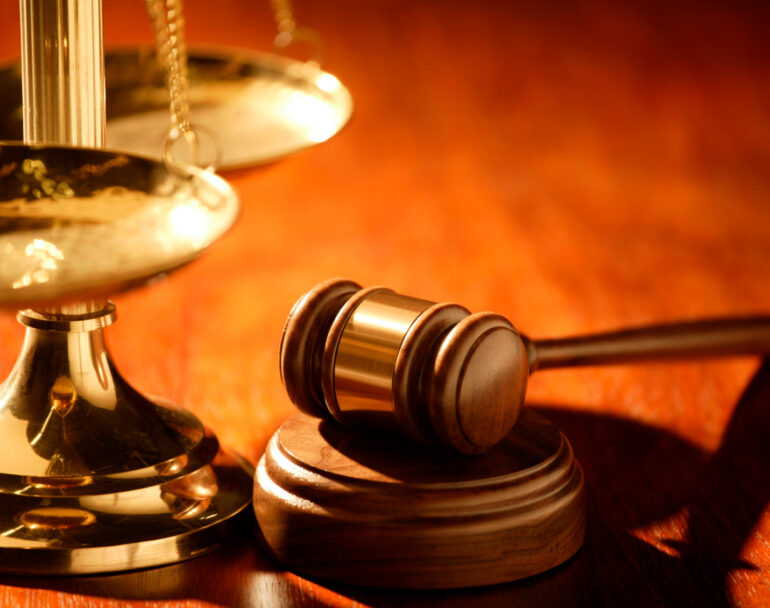
The Power to Regulate Is the Power to Control
In his 1819 opinion in McCulloch v. Maryland, US Supreme Court Chief Justice John Marshall famously stated what everyone already knew, “the power to tax is the power to destroy.” Americans also knew that the power to regulate imposes costs too, so it is akin to the power to tax. And they are now relearning a lesson they should have never forgotten, that the power to tax or to regulate is also the power to control, not just in the supposed “public interest” but in the interest of the regulators themselves, or specific politicians, or the government more generally.
Once, companies could fight government mandates and win. Perhaps most infamously, during World War II, the Western Cartridge Company of East Alton, Illinois, successfully fended off the integration order of FDR’s Fair Employment Practice Committee (FEPC), largely because white workers were willing to strike over the matter at a time when their output was desperately needed for the war effort.
By the 1930s’ New Deal, however, the US government regulated some industries enough to be able to control their managerial decision-making. Radio was perhaps the most important of those heavily controlled industries. Established in June 1934, early in FDR’s first term as POTUS, the Federal Communications Commission (FCC) licensed radio spectrum a mere six months at a time. That gave it the power to harass radio stations that criticized the New Deal, or FDR himself. The FCC soon developed a reputation for denying licenses or causing major paperwork headaches for radio stations daft enough to question the New Deal Order or the administration’s official narratives.
One particularly stunning example of government censorship via corporate proxy occurred in February 1934, when the nation’s radio spectrum was still under the control of the FCC’s bureaucratic precursor, the Federal Radio Commission. Like more recent censorship-by-proxy, it led to death and destruction.
Eager to further his version of a Great Reset, FDR announced that contracts with private airlines to deliver the public mails were abrogated (as gold clauses in bonds had been) and the routes turned over to the US Army Air Corps. Unfortunately, the military’s pilots back then were far from being candidates for Top Gun school. As predicted, they began crashing. Soon, a dozen had died, along with many of the messages they had been entrusted to carry.
To hide his failed policy, FDR censored veteran pilot Eddie Rickenbacker, who took to the airwaves to bring public attention to the matter. NBC Radio’s William B. Miller warned Eddie that if he said anything controversial on air, he would be pulled off, on orders from Washington. Instead of criticizing FDR as intended, Eddie dissembled.
The Twitter Files saga proves that the US federal government is still using its regulatory powers to coerce corporations into censoring critics, despite the fact that doing so is patently unconstitutional. As the US Supreme Court ruled in 1960 in Bates v. City of Little Rock (361 US 516), First Amendment rights “are protected not only against heavy-handed frontal attack, but also from being stifled by more subtle governmental interference.”
The problem of indirect government censorship on the internet, though, has been brewing for decades. In 2006, University of Pennsylvania law professor Seth F. Kreimer warned in a law review article of “censorship by proxy” and noted that the government was looking for the “weakest link” in the digital supply chain between unwanted content providers and their audiences. His article reveals that most early efforts at censorship by corporate proxy by Western governments focused on bad guys, like pedophiliac Nazis, whom nobody wanted to defend. The problem was that the tools they developed were scalable and ready to use against anyone, even someone like Rickenbacker.
The subsequent emergence of a few social media megasites like Facebook, Tik Tok, Twitter, and YouTube created the weak links that the government wanted. Their corporate owners are huge, and hence have much to protect from incursions by the IRS, the FBI, the FCC, the DOJ, and perhaps even the most potent regulator of all, the National Archives and Records Administration.
Social media corporations likely calculated that being willing minions of the Leviathan would not hurt their bottom lines, and could perhaps even augment them. Small users who might pose a risk can be easily ejected without discernibly hurting revenues. Tossing many small users might start to add up, though, especially if they were kicked off for reasons that could be applied to larger accounts, too. Why social media corporations did not hire fancy lawyers to protect themselves from losing “whales” remains unclear, but it is possible that the government played the dirty old trick of hiring all the best ones in town.
There was also the risk that users would flee platforms that developed reputations for censoring legal and highly sought after content, especially if close substitutes were available. Indeed, when it became apparent that something untoward was happening on the big social media platforms, competing entrepreneurs established new ones allegedly immune, or at least less susceptible, to government censorship. The new social media platforms attracted users and hence took some market share away from the big incumbents, but none have been breakout successes. Some may be engaging in the same types of censorship recently exposed at Twitter, while others, most infamously the microblogging site Parler, proved susceptible to attacks on their links to the internet, including app downloading services.
The “chilling effect” of government censorship by corporate proxy has Americans on an icy slope that bottoms out in the sort of political slavery feared by the Founders and Framers. The slope thankfully has been a long one, with some flatter areas, and the Constitution via SCOTUS has thrown us safety lines, but we may be picking up speed. Moreover, one of the most robust of those safety lines, the First Amendment, has been stretched to the breaking point.